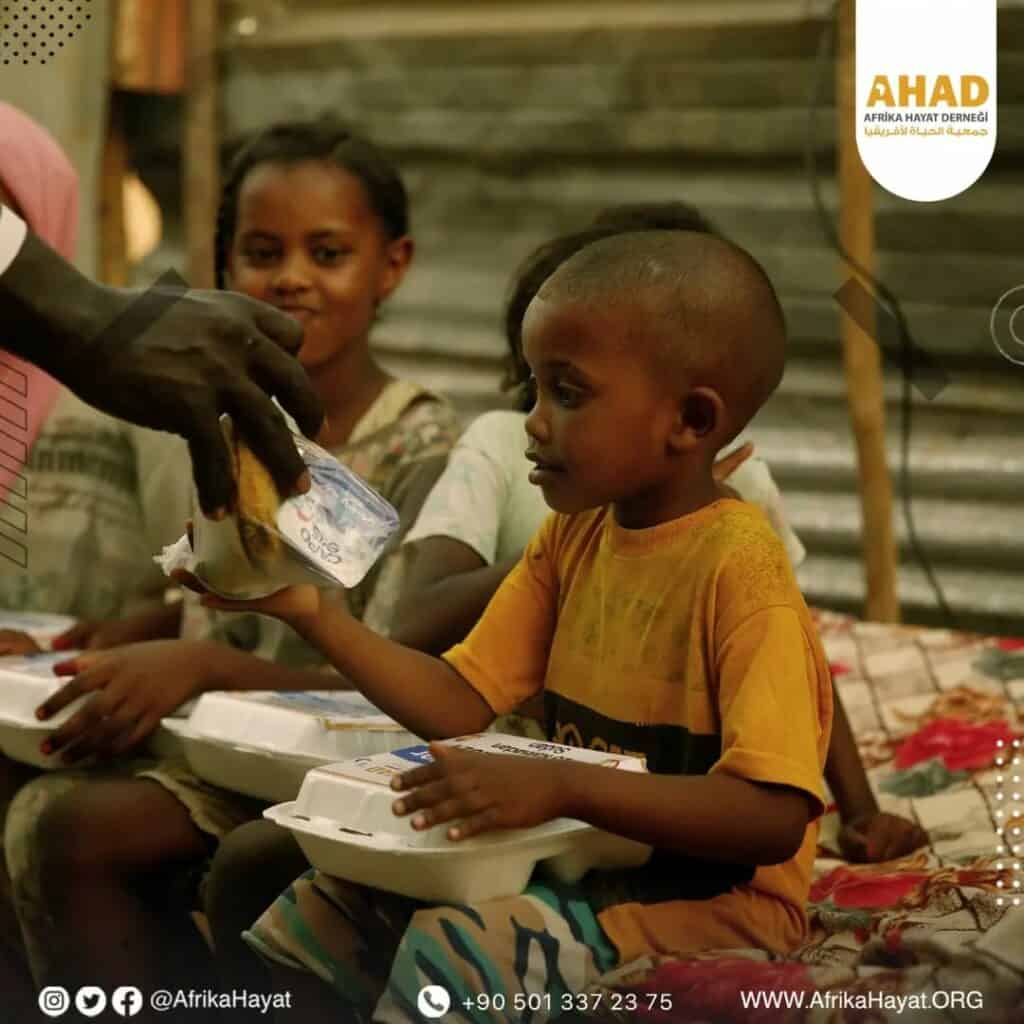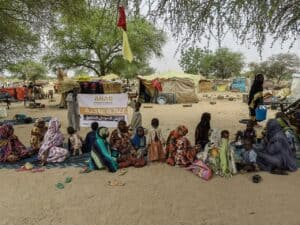Chad is a country in Africa known for its many challenges in the healthcare sector. Chad has long been suffering from a serious shortage of doctors, nurses and medical facilities, which has led to difficult access to basic health care in remote areas. In light of the difficult security situation, as well as the problems of poverty and hunger, the health situation in Chad is in urgent need of additional support and necessary improvements.
The importance of health care in Chad
Health care is of great importance in Chad due to a combination of influencing factors, including the desire to improve public health and reduce premature mortality. One of the most important problems facing health care is the inadequacy of health personnel, the unavailability of vital medicines and only a small percentage of the population has health insurance coverage. This makes the country vulnerable to infectious and chronic diseases.
Health care challenges in Chad
Chad is experiencing numerous challenges in the healthcare sector, among which are the scarcity of human resources, pharmacological preparation and complete disease screening. The state of health of an individual can develop into a serious illness due to a lack of hygienic attention, and in many cases the purchase of medicines is postponed due to the scarcity of funds. Consequently, the country faces significant challenges in dealing with communicable diseases, non-communicable diseases and poor health quality in general.
Public health services
Public health services in Chad aim to provide health care to all, including the poor and needy. These services include hospitals, health clinics and health centers managed by international organizations.
Hospitals and health clinics in Chad
There are many hospitals and health clinics in Chad, most of which are located in urban areas. More recently, more hospitals have been opened in rural areas to provide health care to remote communities.
Challenges facing public health services in Chad
Public health services in Chad face many challenges, including a lack of funding, a shortage of human resources and the unavailability of vital medicines. Health services need more support and improvements to provide basic health care for all.
Common diseases in Chad
Chad suffers from a variety of common diseases that affect its population. Among the most common diseases in the country are:
Types of diseases and pathologies that are common in Chad
Malaria: Chad is home to a dangerous type of malaria that causes many cases and deaths annually.
Yellow fever: this condition is particularly prevalent in urban areas and poses a great risk to public health.
Watery diarrhea: Chad has a problem with the spread of waterborne diseases, such as acute diarrhea and cholera.
Chronic diseases: the population complains of chronic diseases such as diabetes and cardiovascular diseases.
Sexually transmitted diseases: Chad has a high incidence of diseases such as gonorrhea and syphilis.

Health care in Chad
Methods of prevention and treatment
Chad needs to promote health awareness and improve public health conditions to limit the spread of diseases. Some of the main methods of disease prevention include:
Eat healthy, clean food, drink clean water.
Maintain hand hygiene.
Vaccination against diseases.
Use personal protective equipment, such as a mask and gloves.
Treatment of pathology requires the use of appropriate medications and proper therapy. Serious cases need to be transferred to special treatment centers.
Mental health
Psychological challenges facing the population in Chad
One of the public health institutions in Chad suffers from a lack of a mental health resource, and this leads to a lack of important support for people facing psychological challenges. Health neglect also results in many serious psychological conditions, such as obsessive-compulsive disorder and anxiety disorders. Violence, armed conflicts and poverty also increase the prevalence of mental illness in the country.
Psychological rehabilitation services available
Health institutions in Chad aim to provide the necessary mental health services to people with psychological difficulties in various ways, including psychotherapy and psychological rehabilitation services. Employees of health institutions also work to promote awareness of the importance of mental health for individuals and society. One of the main steps that can be taken to develop psychological services in Chad is to increase government funding for health institutions and improve the infrastructure for the provision of available psychological services.
Diet and healthy nutrition
Types of traditional foods and eating habits
Chad is characterized by an abundant diversity of agricultural resources and different cultures, and this affects the quality of available foods and prevailing dietary habits. In rural areas, the diet is characterized by a mixture of vegetable cereals, chickpeas, madams beans and seasonal vegetables, and in urban areas, ready-made foods and fast food predominate, which contain sugar, fat and salt in a high percentage.
The importance of healthy nutrition and healthy meals
Healthy nutrition plays a crucial role in the health of individuals and population groups, healthy meals include vegetables, fruits, whole grains and healthy proteins. Healthy meals help maintain a healthy body weight and reduce the risk of heart disease, diabetes and hypertension. Public health institutions in Chad can promote awareness of the importance of healthy nutrition and provide the necessary nutritional services to individuals and population groups throughout the country.
Prevention and vaccinations
The importance of prevention and vaccinations in Chad
Prevention and vaccinations play a big role in maintaining the health of individuals and communities in Chad, as they help reduce the spread of infectious diseases and reduce epidemic epidemics. The continuous and widespread provision of vaccines and vaccinations in Chad is essential to meet the health challenges faced by the population, helping to promote the health of individuals, the quality of life and the well-being of communities.

Health care in Chad
The role of AHAD in health care in Chad
The AHAD plays a vital role in promoting health care in Chad, as the association provides vaccinations and vaccinations to the most needy individuals and communities in the country. AHAD helps to spread awareness of the importance of prevention, vaccinations and the provision of necessary health care to local communities in Chad, which improves the overall health situation of the country and helps to reduce the spread of infectious and epidemic diseases.
Conclusion
Prevention and vaccinations are essential elements of Public Health in Chad, as they help reduce the spread of diseases and the epidemic. AHAD plays a big role in providing health care and vaccinations to local communities, and promotes awareness of the importance of preventive measures to maintain the health of individuals. It is important that vaccinations and vaccinations continue to be provided in Chad, so that the general state of Health and the well-being of communities are maintained.
Frequently asked questions
Q1 which groups are most vulnerable to infectious diseases in Chad
A1 children, the elderly and individuals with chronic diseases are at greater risk of contracting infectious diseases.
Q2 what is the importance of vaccines in Chad
A2 vaccines contribute to reducing the spread of infectious diseases and improving overall health in society.
Related articles:




